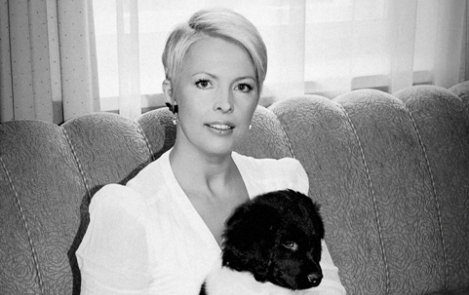-
Reset
+


"One shining moment" - Kodukiri magazine, December 2012
04.12.2012
"Why is Estonian politics keeping dad up at night?" asked my daughter one Sunday morning. She'd just finished making pancakes and was waiting for her father to appear at the breakfast table. But he was still asleep, having gotten up in the middle of the night to beaver away at his laptop for a few hours before going back to bed.
The night before, my daughter had been watching the news and asked what the "50,000 kroons donated by mother-in-law" written on the side of a large gift-wrapped parcel deposited on Town Hall Square in Tartu meant. How do you set about explaining that to a child? To paraphrase Immanuel Kant, 'when in doubt, spit it out' – so I drew a comparison a little closer to home. "Imagine if nanna (my mother) had given dad 50,000 kroons, and he'd then given it to some political party." My daughter looked at me in bemusement. "But nanna hasn't got that much money!" she protested. "That's the thing," I continued, by way of explanation. "Nannas – I mean mothers-in-law of dads generally – don't have that much money. Especially to give to political parties. If they did, they'd probably give it to their grandkids. Or do up their homes. Or go on holiday." "Did someone tell a lie?" my daughter asked me, wide-eyed and with a slightly downturned mouth. After all, lying was as bad as stealing. That's something we'd taught her ourselves.
The air in Estonia has been thick with disingenuousness of late. Police officers, footballers, businessmen, politicians, even advertising campaigns – they've all been taking a rather cavalier attitude toward fact. Children learn cognition and perception from what's going on around them, and the balance between right and wrong is of defining importance. They have to be taught from a very young age that if you tell a lie, you'll get caught out. However hard it is to tell the truth sometimes, your conscious will be clear and you'll be able to carry on without the weight of the world on your shoulders. But still, why should adults be allowed to lie and kids not? Or can kids lie through their teeth now too, since that seems to be the new normality? It can't be a case of one rule for one and one rule for the other.
Being unremittingly economical with the truth engenders defiance, which evolves into censure, which can eventually explode into anger. Such tension leads to shouting matches, and in the ensuing din it's as if everyone's speaking and no one's listening to a word that's being said. And if intellectuals start playing doctor and issuing diagnoses, they also have to assume responsibility. Indeed, anyone who diagnoses anything has to take responsibility for it: for its adequacy and for the treatment they prescribe. Otherwise it's nothing more than generating ill-feeling – from the proliferation of which someone always profits. And that's not us, people.
It seems to me that we need to learn anew how to listen to one another and how to speak to one another in a normal tone of voice. We also need to learn how to say sorry. That way we'll be able to understand and appreciate why many people raise their voice of social conscience in order to be heard. 20 years ago there was nobody in Estonia who was indifferent to the future of the country.
Since then, everyday concerns and the race for success have stifled our voices. The age-old truth that we're stronger together and that it's much easier that way to look after those weaker than us was bound to come back to us sooner or later.
If you're hurting, you should say so. If you're hurting because of the state your country's in, you should speak up about it. Indifference is the worst position you can take. Short-term satisfaction is the most you can derive from arrogance and mud-slinging, whereas in the long term they can make you some formidable enemies.
Sometimes, in order to understand one another, we need nothing more than... silence.
Speak softly to me,
Then my hearing is sharper.
Speak softly to me,
Then my comprehension is quicker.
Neither silence nor speaking quietly represents submission or lapsing into hopelessness. They represent wisdom – knowing how to effect solutions. In order for us to move ahead together, stronger and happier, we need high-flying ideas that are calmly considered, as well as down-to-earth thinking. Nature shows us how to take time out effectively.
Joyfulness and sorrow
I can sense through the wind.
The darkest and quietest time of the year is fast approaching. The trees and flowers are sleeping. Even the sun seems to have drifted off into slumber. Everywhere is silent – and if the Maker so deigns, also pure and white. What's most important is that nobody lies. There's time – and it is time – for us to look at ourselves, as people and as a nation.
Only senseless verbal racket
My ear doesn't hear, even when it's heard.
In truth, we all want to be better, so much better, than we have been. To light the candles and find that goodness again, so that our one desire is to ascend to heaven and make the days longer and the nights more peaceful for the good of all – for all the dads and all the kids and Estonia as a whole. Love one another. Love your friends, and love your enemies. Because love conquers all. Merry Christmas!
Quotes taken from the Betti Alver poem Räägi tasa minuga /Speak softly to me/ (1965)



